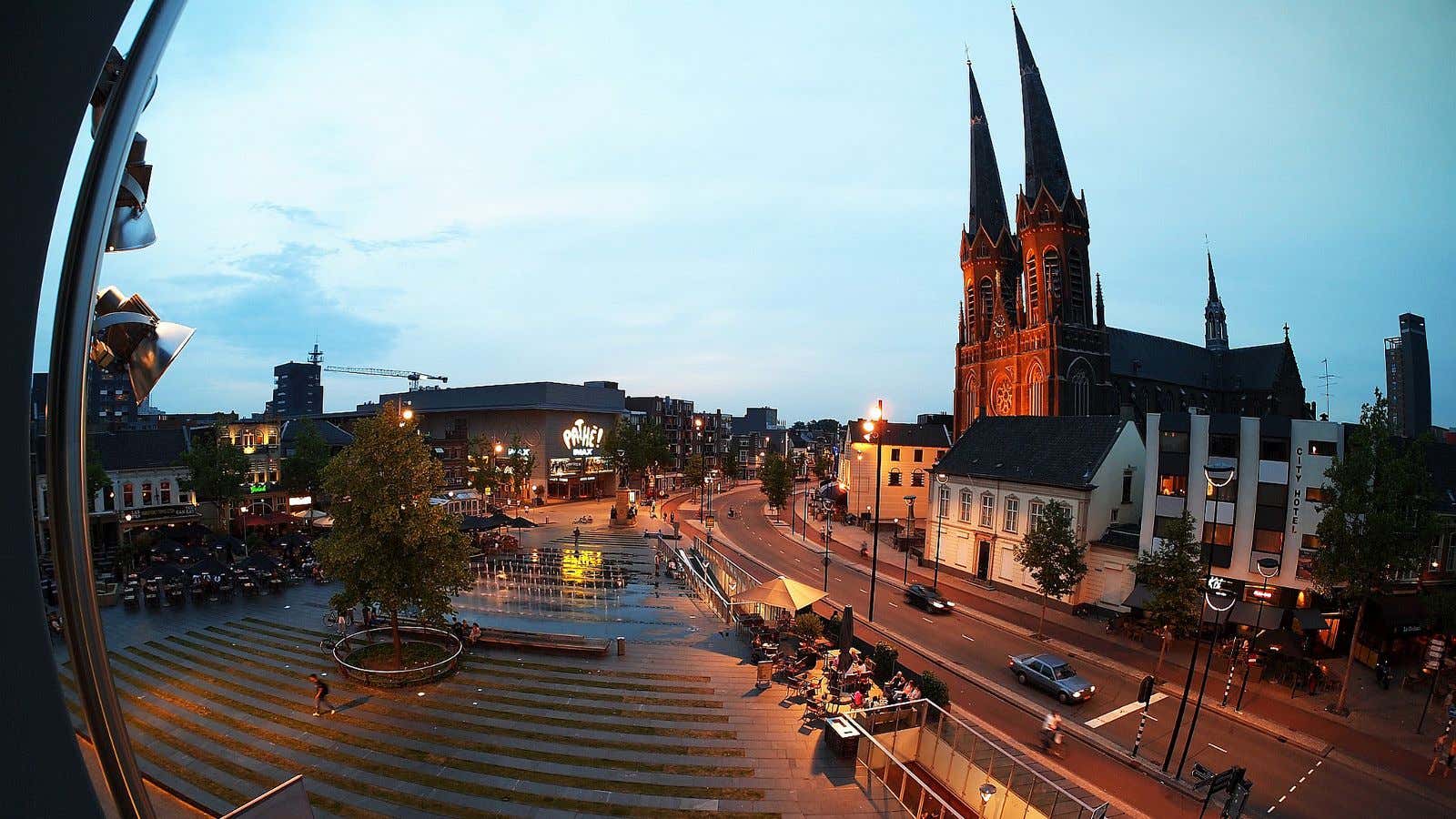Free cash is in the works for a growing number of Dutch urbanites. After the city of Utrecht announced that it would give no-strings-attached money to some of its residents, other Dutch cities are getting on board for social experiments with “basic income,” a regular and unconditional stipend to cover living costs.
Tilburg, a city of 200,000 habitants close to the border with Belgium, will follow Utrecht’s initiative, and the cities of Groningen, Maastricht, Gouda, Enschede, Nijmegen and Wageningen are also considering it.
Supporters of basic income say it is a good mechanism to alleviate poverty and social exclusion. A recent study conducted in 18 European countries concluded that generous welfare benefits make people likely to want to work more, not less.
Ralf Embrechts, director of the Social Development Association of Tilburg and one of the promotors of the program, said that’s the theory the program is designed to test.
“We want to discover, if you trust people and give them a basic income without any rules or obligations—so, unconditionally—that they will do the right thing,” he explained in an email to Quartz.
If Tilburg’s basic income project gets the green light from Netherland’s state secretary of social affairs, the town will provide an extra paycheck to a pilot group of 250 people starting in January 2016, said Tillburg officials said. The city has not confirmed the amount of the stipend, but in Utrecht checks will range from around €900 ($1,000) for one adult to €1,300 ($1,450).
Although the classic basic income theory proposes universal payments across the population, the two Dutch experiments will only focus on residents who are already recipients of social assistance. Those in the program will be exempt from the severe job-seeking requirements and penalties in Dutch law.
Authorities aim to test how citizens react without that sword of Damocles over their heads. Will the money encourage them to find a job or will they sit in their couches comfortably?
Several cities across the world have experimented with basic income, from India to Canada, where the famous Mincome program took place in the 1970s, in the town of Dauphin, Manitoba.
Detractors say that such schemes are expensive and harmful to the economy, since they don’t stimulate people’s initiative to work. And some complain that these programs just feel unfair.
“It would be outright unjust if in this way welfare recipients would be getting more money than employees that have been doing full-time low-paid work for years,” asserted the economic daily Het Financieele Dagblad in an op-ed piece (paywall) on Tilburg’s initiative.
